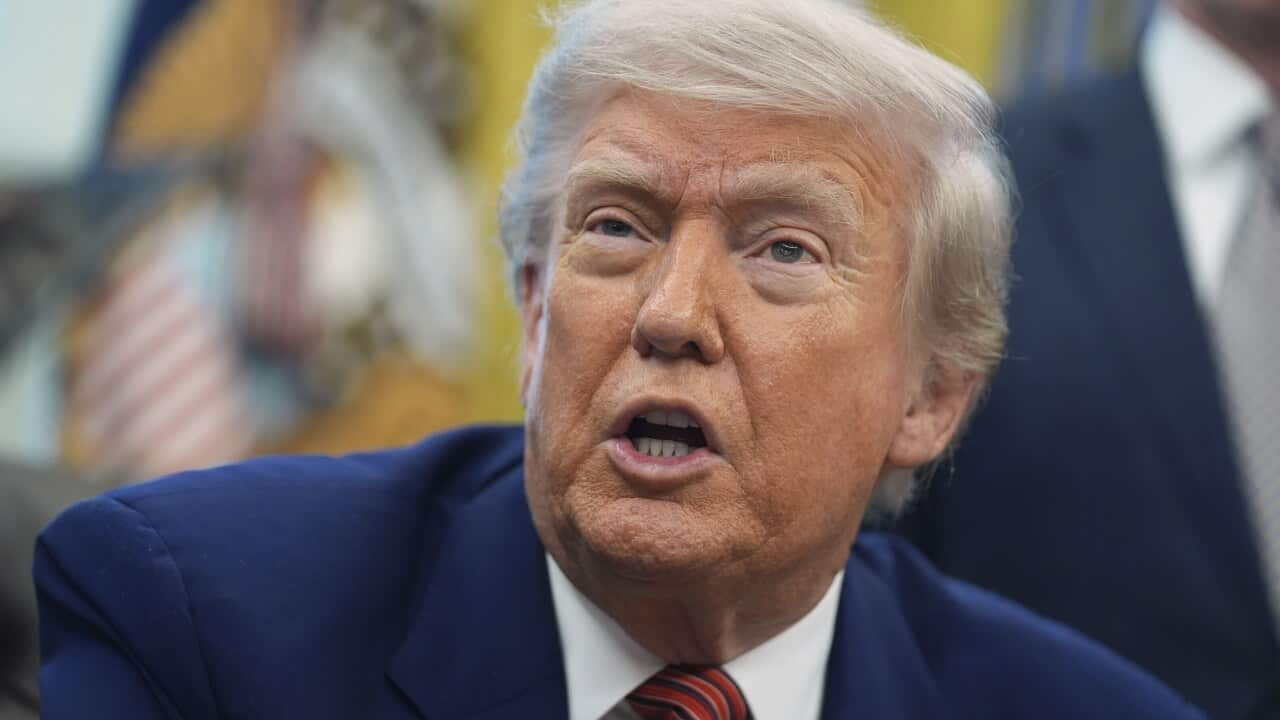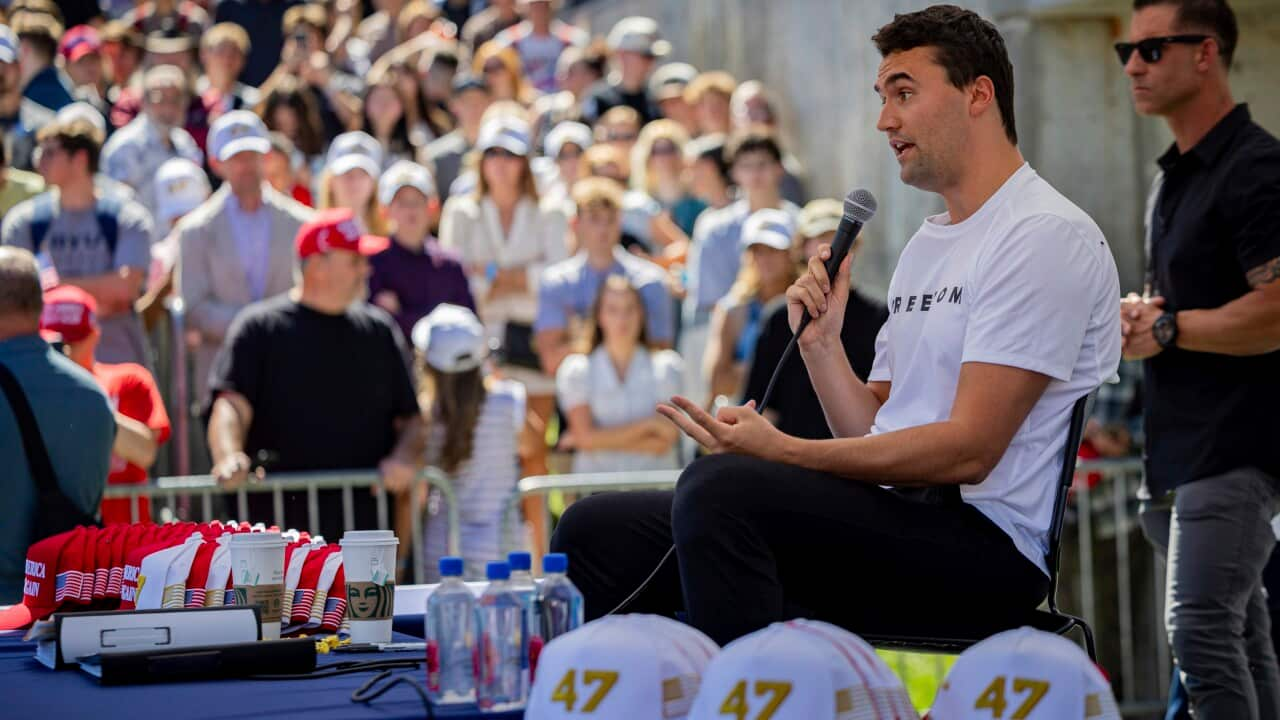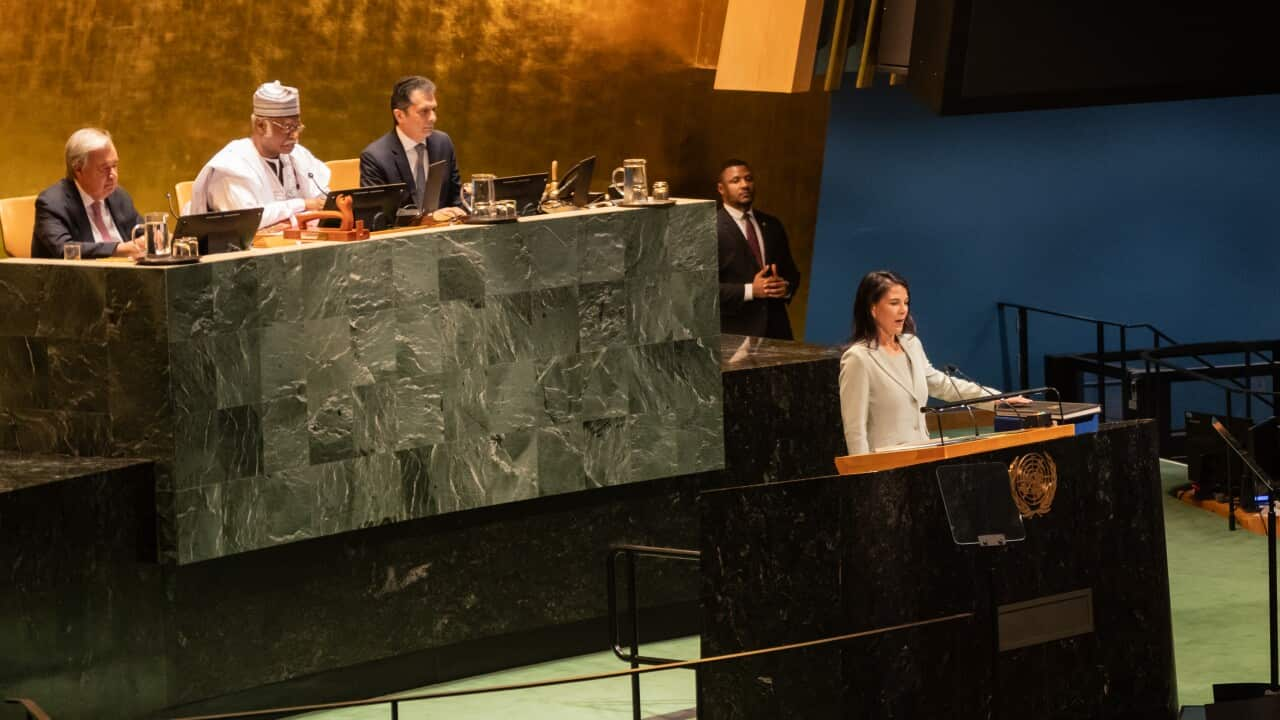With the implementation of US President Donald Trump's sweeping global tariffs, some countries are now scrambling to reach a deal.
Few countries have managed to make secure deals with the US ahead of the deadline, raising concerns for the global economy.
On the 2nd of April this year, United States President Donald Trump stoked panic among global leaders, announcing sweeping tariffs on all imports to the US.
After upending global financial markets and igniting a global trade war, only a few days passed before the administration ordered a 90-day pause on the measures.
With an end to the ninety days fast approaching and only a few deals reached, fears are mounting over potential impacts on the global economy.
Donald Trump says he's signed and is ready to send letters to 12 countries so far, outlining the various tariff levels they'll face.
"I did, I signed some letters, and they'll go out on Monday, probably 12. Twelve different amount of money, different amounts of tariffs, and somewhat different statements. "
JOURNALIST : "Mr. President, which countries will receive those letters on Monday?"
TRUMP: "It'll be announced, I have to announce it on Monday, I can't do it now."
Despite the administration's claims a pause would allow ample time to strike their goal of 90 deals in 90 days, most of those deals never materialised.
Agreements were made with some countries, first with the U-K, then China, and most recently Vietnam.
After a pact was made with Vietnam however, Chinese officials raised concerns about it's impact on Chinese trade.
Chinese Ministry of Commerce spokeswoman He Yongqian says China may take countermeasures.
"The imposition of the so-called 'reciprocal tariffs' by the United States on its global trading partners is a typical unilateral and bullying act. China has always firmly opposed it. We have noticed the relevant situation and is assessing the deal. China's position is consistent. We are happy to see all countries resolving economic and trade disputes with the United States through equal-footed consultation, but we firmly oppose any country reaching trade deals by sacrificing China's interests. If this happens, the Chinese side will resolutely take countermeasures to safeguard its legitimate rights and interests."
In India, which faces 26 per cent tariffs, officials say they're ready to make deals in the national interest but won't be rushed into reaching the US deadlines.
Japanese and South Korea leaders are scrambling to reach a deal, with negotiators engaging in lengthy discussions with US officials over the weekend.
South Korean President Lee Jae-Myung says negotiating a deal has been a difficult process.
"It’s clear that the tariff negotiations are not easy. At this point, I can't confidently say whether they’ll be concluded by July 8. We’re doing our utmost. What’s crucial is that the outcome must be mutually beneficial for both sides. However, even now, it’s not entirely clear what each side precisely wants — those details are still being worked out."
Officials also say they're closing in on a framework agreement with the European Union, which would avert 50 per cent tariffs.
Talks in Washington could go down to the wire, but officials say the E-U is willing to accept 10 per cent blanket tariffs in exchange for an extension and possible concessions on a 25 per cent car tariff.
Simon Schuetz is head of communications at the German Association of the automotive Industry.
He says the industry will struggle under the proposed terms.
"So, for our industry it is very important that in the upcoming week there will be a solution. We are quite aware that it is impossible in this short time to do a whole trade deal with all the details. So we are asking for first deals for the important domains like the automotive industry, because the current tariffs that we are facing are something that we cannot live with in the future that is very toxic for our industry. So Europe is really asked to find a deal with the USA now and then in the aftermath, they can do the details."
With European investors bracing for the looming impact of tariffs, European stocks declined on Friday.
Poland is Europe's largest furniture exporter and the world's third largest, with the US being one of the country's biggest markets.
Dominik Czylkowski is the CEO of NOTI, a Polish furniture company.
He says the US market is crucial to success.
"That's a big market, and that's a big partnership for us. So, of course, we cannot cut that from day to day. And of course we have to solve the issue together and handle this situation for next few weeks until we will find the best solution for us, but mainly for our customers."
Meanwhile, Australian Prime Minister Anthony Albanese says he has confidence the US tariffs won't impact Australia's economy.
As well as the 10 per cent baseline tariff, Australian steel and aluminium exports to the US face a 50 per cent tariff.
Mr Albanese told Sky News he expects the 10 per cent on all Australian imports to stay in place.
"We know that no country has a better tariff, if you like, level than ten percent. Now we'll continue to put our case as we as we do, we are in a position where you know on July 9 that won't really have an impact on us, because that's about other countries who have higher rates overnight. "
REPORTER: "We won't get a letter on July 9? We won't get a determination?"
ALBANESE:" We're on 10 per cent"
REPORTER: "That's what we're going to stay on after next week? "
ALBANESE: "Well, I assume that will be the case. "
Also speaking to Sky News, opposition trade spokesperson Kevin Hogan says the Prime Minister ought to be doing more.
"I think he's waving a white flag, Andrew, and I don't know why he'd be saying that before the announcement. We have seen carve outs for some countries. We know the UK have had a bit of a carve out on the steel and aluminum tariffs. Remember, steel and aluminum tariffs have gone up to fifty percent. They're not at ten percent. Countries have got carve outs to that. We've seen carve outs, Mexico have got a few carve outs. Canada have got a few carve outs from what tariffs they initially had as well."
While it's clear the tariffs will hit global economies hard, experts say the US economy is already facing the consequences of Mr Trump's policy.
According to analysis by the JPMorganChase Institute, mid-sized businesses in the US face an estimated $82.3 billion in additional costs if the US maintains a 10 per cent universal rate on all imports.
No senior US official has been more vocal about this than Jerome Powell, chair of the Federal Reserve.
Despite Mr Trump’s public demands and attacks, Mr Powell says he is keeping US interest rates on hold while waiting to see how the administration’s trade strategy pans out.
Testifying to Congress late last month [[24/06]], he explains why.
"The effects of tariffs will depend, among other things, on their ultimate level. Expectations of that level, and thus of the related economic effects, reached a peak in April and have since declined. Even so, increases in tariffs this year are likely to push up prices and weigh on economic activity. The effects on inflation could be short-lived, reflecting a one-time shift in the price level. It's also possible that the inflationary effects could instead be more persistent. Avoiding that would depend on the size of the tariff effects, on how long it pass through fully into prices. And ultimately on keeping longer term inflation expectations well anchored."













